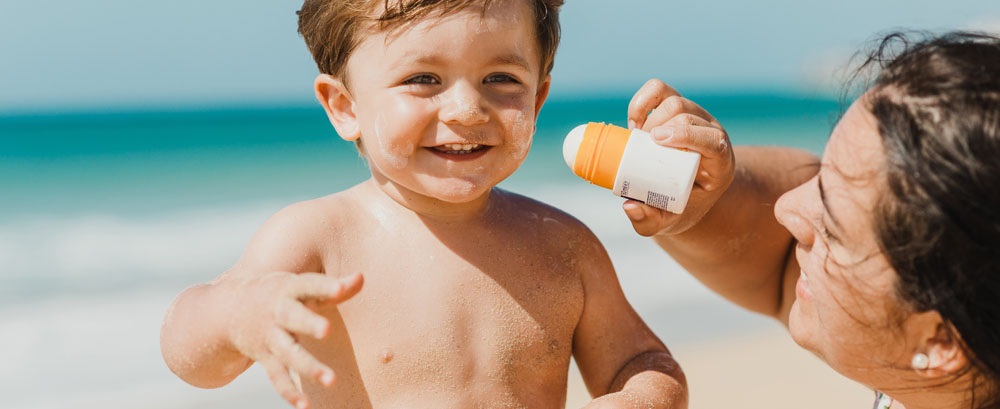
Summer is a time for family get-togethers, road trips, and venturing into the great outdoors. It’s also a time of sunburn, heatstroke, and bug bites. Don’t let the risk of illness or injury prevent you from enjoying all the scenery Washington state has to offer. Just use these summer health tips to stay safe in the sun.
Enjoy sunshine safely
Our long summer days are the best time to enjoy Washington’s incredible outdoors, but sun exposure can lead to sunburn and increase the risk of skin cancer. The Skin Cancer Foundation notes that sunburn (an inflammation due to ultraviolet damage) can hasten aging and lead to carcinomas or even melanoma. Natural melanin protects your skin from the sun’s rays, and different levels of melanin mean that people tan or burn in different ways.
To protect yourself from sun exposure, wear loose-fitting long sleeve shirts, long pants, shoes, and broad-brimmed hats. Clothing specially designed for sun protection will shield you from the sun’s rays while still being cool and breathable. For the skin that isn’t protected with fabric, use a broad-spectrum sunscreen with an SPF rating of 30 or higher. Remember that no sunscreen is entirely waterproof. Apply more sunscreen after you swim or sweat. If you have sensitive skin, try zinc or titanium oxide ointments which sit on the skin’s surface rather than absorbing in.
Stay cool
Heat-related illnesses—dehydration, heat exhaustion, and heat stroke—are the other dangers of hot summer days, especially during a “heat dome” where atmospheric conditions raise temperatures well above average. The Cleveland Clinic notes that dehydration and heat exhaustion occur when the body can’t cool itself through sweating. A person who is losing more fluids than they take in will experience dry skin, fatigue, and light-headedness. If untreated, these conditions can develop into heatstroke, where the body’s internal temperature rises to over 104 degrees Fahrenheit.
The first tool to prevent these illnesses is an awareness of their causes and symptoms. When temperatures rise, it’s best to drink plenty of water and seek out cool environments. If your home doesn’t have air-conditioning, find refuge in a cooling center like a public library.
The Centers for Disease Control recommends reducing physical activity during the hottest times of the day and wearing lightweight, loose-fitting clothes. Stay hydrated but avoid sweet drinks or alcohol as they can cause you to lose fluids. Sports drinks can provide needed fluids as well as the salts and minerals that are lost when you sweat. And make sure to keep children, pets, and plants hydrated. Young children and the elderly are most at risk for heat-related illness.
Swim carefully
Swimming is one of the most obvious ways to cool off, but it presents certain risks. Before diving into a lake or river, be sure to check the water temperature. Glacially fed bodies of water can be cold even on a hot day and that cold can trigger a cold shock response (CSR). The National Center for Cold Water Safety notes a CSR can include involuntary struggling, mental impairment, and a gasping reflex that may lead to drowning. Always enter unknown waters gradually and feet first.
The National Drowning Prevention Alliance suggests five layers of protection when around water, any one of which could save a life:
- Install and respect barriers around swimming pools such as fences and pool covers.
- Don’t swim alone and make sure an adult is supervising child swimmers.
- Teach everyone basic water safety and swimming skills.
- Use lifejackets when appropriate.
- Have life-saving equipment on hand and know how to use it.
Avoid bug bites
The Centers for Disease Control warns that bug bites can spread malaria, yellow fever, and Lyme disease. Some of these illnesses can be prevented with vaccines or treated with medication, but Zika and Lyme are two diseases can’t be treated and may have a lasting impact to your health. Whether traveling around the country or the world, know what insects you might encounter and take precautions against them.
Washington state has fewer biting insects that other parts of the country, but we are still home to a variety of mosquitoes, deer and horse flies, ticks, bees, and wasps. Pestlock, a pest control company serving Oregon and Washington, has a complete list of common biting bugs. Some bug bites can cause an allergic reaction ranging from a rash to swelling and trouble breathing. Call 911 if a bug bite results in swelling in the face or trouble breathing.
The most obvious defense against biting insects is protective clothing. Loose fitting, long-sleeved shirts and long pants deter mosquitos. Tucking pant legs into your socks will protect against ticks. For added protection, clothing can be sprayed with permethrin, an insecticide. Insect repellent is another safeguard. The Environmental Protection Agency recommends repellents such as picaridin, oil of eucalyptus, or para-menthane-diol (PMD). Remember to spray on repellent after you slather on the sunscreen.
Summer is when we can enjoy Washington’s scenery without the cold, gray, and wet of winter. Remember to venture out into the sun safely by taking sensible precautions against sun burn, heat-related conditions, and bug bites. This is a time of year to enjoy the outdoors, not spend them inside nursing a rash or illness. If you have any questions about summertime health conditions and how to prevent or treat them, set up an in-person or virtual appointment with your Kinwell clinician. Just call 833-411-5468 or reach out through your MyChart app.


